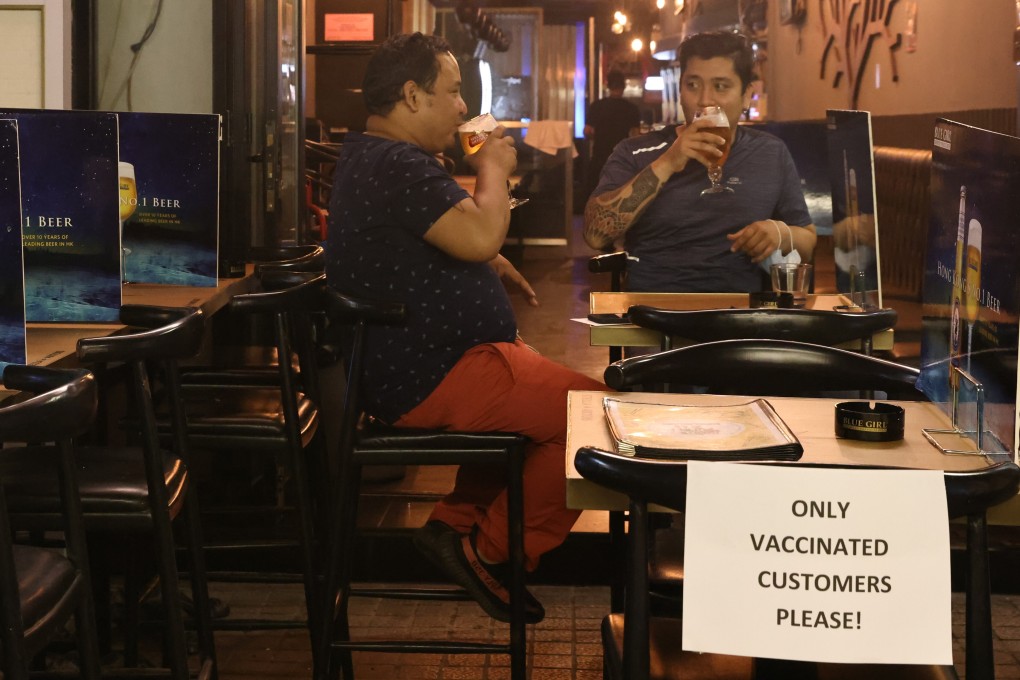Opinion | Can segregation rules at bars, restaurants really help raise Hong Kong vaccination rate?
- With its ‘vaccine bubble’, the government has offloaded the responsibility to boost vaccine uptake onto struggling bars and restaurants
- The complex arrangement also disregards those who have recovered from Covid-19, or have genuine reasons not to take the vaccine

Israel is reopening because it has one of the world’s most successful vaccine roll-outs, with 60 per cent of the population having received at least one dose, and 56 per cent fully vaccinated.
Domestic or international vaccine passports are being rolled out, or considered, in various countries. Certainly, these programmes provide an incentive for people to get the jab. The thinking behind these programmes is that restrictions that limit freedoms and social activities should be tailored to verifiable risk.
There’s nothing controversial here, but how this thinking is put into practice can raise concerns.

02:13
Phuket gets Thailand’s first Covid jabs as resort island prepares to reopen to foreign tourists
Given the different cultural, social and political contexts that governments have to navigate, there really is no gold standard, though all must be mindful of the danger of granting privileges on the basis of health and fitness.
